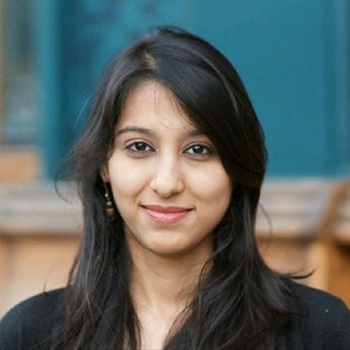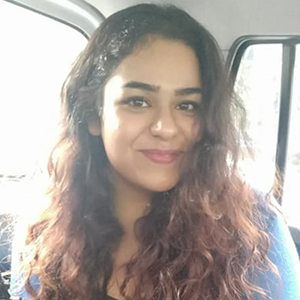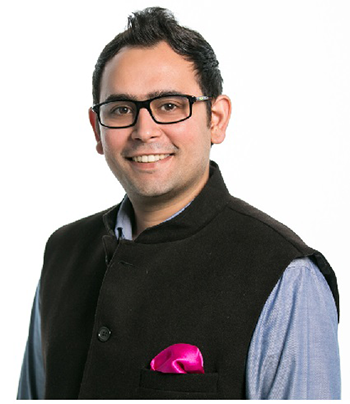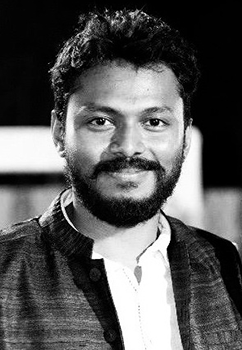In conjunction with this year’s WARC Awards for Asian Strategy, this series aims to showcase perspectives from young strategists across Asia, highlighting their take on strategy as a marketing discipline and career path. In this edition, we hear from India.
India is a dynamic and complex market with a longstanding appreciation for the role of strategy in marketing planning. With more than 50% of its population below the age of 25 and more than 65% below the age of 35, it’s no stretch to say that the country’s future rests with its youth.
The young strategists from India that WARC reached out to all have one thing in common: A nuanced understanding of their chosen discipline, paired with an insatiable curiosity that drives the pursuit of actionable insights that can make or break a brief. But as is the case with the best stories, it’s better to hear directly from the source.
Vedshree Singhania

Title: CX Strategist
Company: VMLY&R
Age: 31
How did you find your way into strategy work?
I think the decisive shift towards Strategy as a profession came while I was studying International Management and Design Innovations in the beautiful city of Glasgow. I was exposed to how thinking by design could impact marketing and management problems. I was reaching for a designer’s toolkit to address brand and business problems. Once again, connected ecosystems came into perfect view.
I was always a curious person and loved making connections. I believe that there is a pattern to everything and it’s important to see it before arriving at choices, opinions, thoughts and beliefs. Choosing strategy was an expansion of the same curiosity.
Being a strategist made sure there is always meaningful movement in my work. It’s a continuous cycle of learning, unlearning, relearning and realising. For a strategist, the journey never stales, the plot can always thicken and the future is ripe with uncertainties. That’s my thrill and at the same time, a humble submission to the power of strategy.
How do you personally define the discipline of marketing strategy?
In all honesty, for me, marketing strategy doesn’t exist in isolation anymore. A good marketing strategy is a simple story told well.
More often than not, marketing strategies become about a series of activities deployed across a multitude of channels via different mediums. I do not deny the importance of execution and deployment, and I understand the complexities of choosing the right channels. However, I believe that the true genius of a good marketing strategy lies in how easily it connects with people. But then again, making it simple is often the hardest thing to do.
What’s on your wish list in terms of strategic thinking/work?
I wish to work with companies, ideas and concepts that realise the importance of continuous exploration. We are in an environment that values rapid execution over sustained thought. However, if we do not look at creating a strong system (foundation) first, the most beautiful of buildings will fall.
I wish to work with people who understand the virtue of strategy and design as a continuous practice across the board. I am also a design thinker and, as such, crave for projects that don’t box in a discipline but allow me to experience and integrate the business ecosystem into my creative strategy.
Designing for a sustainable future is a purpose very close to my heart. I look forward to more projects that have sustainability as its core purpose. One such project I am associated with deals with Community Urban Farming and it’s one of my most blissful experiences - converting dead city space into sprawling farms/green belts.
How might we build a culture of farming in urban India to provide freshly harvested foods to the nearby communities using shared farming models and organic methods? Now that’s a problem statement I would love to strategise for!
Where do you see yourself working in 5-10 years? How do you see your career developing?
This is a question that always baffles me. I will remain curious, still love to work with ideas that matter and probably remain in consulting. But by then, I see myself as a professional who is valued for thought.
Where do you see strategy going in the next 10-15 years?
I see strategy, once again, becoming the central commitment to building a business. Somewhere back in history, the Industrial Revolution started changing business mindsets to a much more mechanical, profit/loss-driven environment. Innovation took a backseat and people became human resources. The Apples of the world disrupted that and introduced the age of innovation.
However, over time, innovation has lost itself in a barrage of buzzwords. An idea is impactful only when it’s desirable to people, viable for business and feasible to sustain. Arriving at this golden spot is a combination of a well-designed strategy and blue-sky thinking. I believe that in the coming years, no innovation or advancement will be truly impactful unless it’s backed by continuous and always evolving strategic design.
Human-centric strategy and design innovation are at the cusp of a new renaissance. As people become more and more aware, sustainability, innovation, purpose and meaningful interactions are taking hold again. We are a society in transition, where intense human needs are coming back to the forefront. As such, I see the practice of strategy becoming more and more all-encompassing.
Disha Bhattacharya

Title: Group Manager – Brand Strategy
Company: Dentsu Impact
Age: 27
How did you find your way into strategy work?
My journey into strategy has been an unconventional one. I started off my career as a chef, working in luxury hotels across the country. But soon after, I shifted gears, swapped my knife for a pen and joined the advertising industry as a copywriter. While I loved honing my craft and thinking of the next big idea, there was this constant niggling feeling within me, that there was so much that I did not know! Because while my role was to deliver creatives, I wanted to understand the entire marketing strategy that led to the conception of the brief. This curiosity often saw me pestering my fellow planners, hounding them with a million questions. And as I started immersing myself in this process of strategic thinking, it became very clear to me that strategy was indeed the missing piece that I was looking for and going forward it was the career path that I truly wanted to pursue.
As a strategist, how do you spend your time at work?
The core task of every strategist, junior or senior, is to essentially solve key brand challenges and answer the big questions. Questions like “What is the best way a legacy brand can speak to a GenZ consumer?’ or “How to meet business KPIs through marketing?” or even “Why is a brand suffering even when they’re doing everything by the book?”. And the process of delving deeper into the what, why and how takes up the bulk of my time.
For starters, this involves a lot of stalking - stalking trends, brands, culture, personas across the length and breadth of the worldwide web. It further requires processing several excel sheets of data and quantitative and qualitative research reports. There is also the occasional staring into the screen, expecting strategic excellence to just strike. And then, when it does, I spend my time presenting the proposed solutions in the most effective way possible.
Also, being an extremely curious person, I’m constantly looking for new problems to solve. To satiate this hunger, I’ve started spending a considerable amount of time in the area of new business development as well.
What’s on your wishlist in terms of strategic thinking/work?
I’ve always wanted to work on brands that demand a holistic marketing strategy partnership, to be able to go beyond brand KPIs and also answer for business KPIs. At Dentsu Impact, I’ve got an opportunity to delve into this genre of strategic thinking through brands across categories – from Automobile to Fashion etc.
What I really wish I had more approvals on, though, would be to conduct more extensive ethnographic research and studies. Especially because while online behavior can be decoded through tools, offline consumer habits or shifts can only be identified through real human interaction and observation. I’d like to intimately understand how consumer behaviour changes across various Indian geographies and demographics, especially suburban and rural consumers. This is crucial because be it internet penetration or FMCG, growth in major sectors is currently being driven by rural markets. Hence, there is a great requirement to develop insights specific to this consumer and, in turn, create real value for them.
Where do you see yourself working in 5-10 years? How do you see your career developing?
My future goals are two-pronged in nature. In the next few years, I wish to gain more experience on the brand side and associate with organisations that are geared towards addressing key SDGs. And in the long term, I wish to work with consultancies and firms that specialise in social marketing and behaviour change communication. I truly believe that in India, where several socio-economic problems are rooted in cultural challenges, effective social marketing plays a key role in bringing change from the ground up.
Currently, I see a massive gap between the CSR glory work created by agencies and the behaviour change communication that makes a real difference on ground. Hence, I wish to bring in the much-needed creative flair to social marketing so that real work can bring about real results and change.
Where do you see strategy going in the next 10-15 years?
The shift has already begun. Marketing strategy was always more brand-centric, but now the balance is tipping towards achieving tangible business outcomes by being more consumer-centric. Blockchain will play a key role in cementing this business-centric approach while making communication incredibly personalised to each consumer. And as marketing is shifting towards the intersection of brand, consumer, business and technology, strategists will need to be a lot more hybridised than they are now. For example, we already have creative strategists - demonstrating a clear amalgamation of two distinctive disciplines - but this is just the tip of the iceberg. Going forward, strategists will need to operate as media strategists, brand strategists, UI/UX experts, CRM + loyalty experts etc; it won’t be as neatly divided as it is right now. Furthermore, in the current context, there still exists a gap between strategy and project implementation/management. Going forward, this gap will become narrower as strategic thinking will be evaluated on the efficacy and efficiency of its implementation and the business outcomes that it delivers.
Anupama Yadav

Title: Planning Director
Company: Ogilvy
Age: 30
How did you find your way into strategy work?
Strategy for me is a “career by chance”, purely serendipitous, it just happened to me.
I wasn’t doing much after finishing school; that’s when a friend of mine, who was working with JWT, asked me to come interview for an internship in her team. The internship came through and I loved the idea of working on brands and how a strategist can be the force behind making a brand unique and memorable.
And I landed a job in advertising and have stuck around since.
As a strategist, how do you spend your time at work?
Problem identification is the starting point for devising the right strategy to solve any business (marketing) problem effectively and creatively. Understanding the business problem or, say, sharply arriving at the problem statement is how I start with any brief. Next in the process is turning the business problem into a consumer problem and for that one needs to connect with consumers. It’s a lot of consumer interaction, informal research; just chatting with people can throw up interesting light on consumer tensions and interesting nuggets of stimulations for ideation. So, I am always chatting with colleagues, friends and strangers.
What’s on your wishlist in terms of strategic thinking/work?
Strategic thinking is all about future preparedness, equipping yourself to preempt future trends with regards to culture and consumer. And then capitalising on these trends to stay relevant and connected.
More often than not, we are too caught up in answering brief after brief to tick work off the list that our approach becomes reactive and we may fail to bring meaning to the work we do.
I hope we get and clients allow more time and resources for proactive work. It can help us unearth and address emerging need states, seize changing cultural narratives and align with shifting consumer sentiments.
I wish we could take more risks and not always filter and judge the work through numbers but sometimes gauge an idea’s potential by its meaningfulness in creating positive interactions and changing social narratives.
Where do you see yourself working in 5-10 years? How do you see your career developing?
I’ve always wished to be a global planner. In 10 years, I would hopefully have done a few stints in different countries or continents.
While I would love to stay in agencies, preferably Ogilvy, I’m not averse to the idea of flirting with other formats, which bring challenges and learning and keep me stimulated to become an all-round strategist.
Tech startups intrigue me but could be challenging and enriching at the same time. They can help me dimensionalise how I approach my work and help me become a better strategist.
I would love to work in social impact agencies that are engaged in meaningful work, aimed at solving society’s most pressing issues in different areas.
Where do you see strategy going in the next 10-15 years? How do you think (or hope) the discipline will evolve?
I believe the essence of strategy will never change. However, the environment that brands operate in is ever evolving and strategy will have to be agile to adapt and evolve to factor in the changing culture and ecosystem that, in turn, are changing consumer attitudes and behaviours.
Strategy will have to embrace new adtech to reach consumers and this integration can open up unimaginable possibilities for brands.
For instance, I feel, tech will enable us to see and connect with consumers as individuals and not segments. It will equip us with deeper insights into an individual’s identity, behaviour, transactions and preferences, and with these personalised insights, we can forge more meaningful, relevant and deeper connections with our consumers.
Other smaller disciplines like semiotics, which we have been hearing for years now but haven’t seen being fully accepted and integrated with strategy, will become integral strategic tools for strategists to decode culture and consumers.
Bhavya Khurana

Title: AVP, Strategy
Company: Zenith
Age: 31
How did you find your way into strategy work?
My progression into a strategic role came as a consequence of my work profile and a sheer alignment of a refresh on client contracts.
Strategy as a discipline did not exist in my company until 2013/14. Our value proposition of ROI from Search was strong and we bagged the performance mandates for many big clients while brand planning stayed with other agencies.
However, I was one of the very few people who catered to Display planning in an environment dedicated to showcasing ROI. Display, however, impacted TOFU and to be able to convince my clients for budget approvals, I was researching and building strategies on how to make each of my placements work harder to deliver the target ROI, thus bringing in a high level of sophistication to planning much ahead of its time.
Before long, thanks to my clients’ confidence, incremental business gains and multiple award wins, I became the go-to person for our team as well for all new media initiatives to upsell for other existing accounts.
Over the following two years, I went from Display Planning to Strategic Media Planning & Buying, standardising the approach of Display for all planners and setting benchmark rates to be negotiated that help get us a desired ROI from our media. Right around that time, most of our client contracts were due to be over with an expectation of re-pitches and I was asked to take up Digital Strategy to work a full funnel approach and an active participation towards Business Development.
As a strategist, how do you spend your time at work?
A portion of my time (about 40%) is dedicated to existing clients that have opted for a strategy resource, while the rest is dedicated towards new business efforts.
Uncovering consumer intent is a critical element of the work that takes up the bulk of my time. From keyword insights and social listening, to making use of our consumer panels and primary research, these are all geared towards finding that new “segment/need” to leverage for growth for our clients.
For example, for a product like Vanish, we saw “removing blood stains” as a high growth need from AdWords. When interviewing power users (high usage) and honing deeper to understand the reason behind “blood stains”, we uncovered “insulin injections being used by diabetics” as the segment to target. Without a deep-dive, there is no way a detergent brand would lean towards “diabetics” as a growth audience.
How do you personally define the discipline of marketing strategy?
Marketing strategy to me is the translation of a business goal into the right customers, the right markets, the right brand experience and the right media.
The key steps to follow for a successful marketing strategy are:
- i) Make it Right: Identifying the growth challenges, growth audience and their insights.
- ii) Make it Magic: Identifying the experience strategy in terms of the messaging and its architecture.
iii) Make it Work: Scenario Planning, Multi-Media Activation and Optimisation
Where do you see yourself working in 5-10 years? How do you see your career developing?
In the short term, I am inclined to stay with an agency or consultancy. To develop in my career, I see a continuous need to update myself with formal education towards Data Science, Design Thinking and AI in Marketing etc every year to keep pace with advancements in our field and to stay relevant with the business environment.
I started with Design Thinking in 2020 and have become a part of another two courses for 2021 with Google/ISB’s Digital & Global Leadership Program towards “Leading in a Platform World” at Publicis.
I expect to be able to showcase and convince our existing/potential clients of the merits of onboarding critical data partners for their business in this dynamic environment by collaborating with the Data Science team to onboard, implement and champion tools towards data use and representation for multiple clients and product categories.
Where do you see strategy going in the next 10-15 years?
In the long term, most aspects of the marketing strategy should become automated with the multiple data partnerships/sources – DSPs, Customer Panels, Website Analytics, Multi-Media reporting, Market Mix Models, CRM and Retail Data connected to one another to be able to suggest the audiences and media mix by market.
As most analytical work gets offloaded to tools, marketing strategists would either need to be proficient design thinkers with an ability to create newer product and brand experiences focused on a continuous innovation (this would be a desired position to be placed with brands), or strategists will need to develop a keen understanding of data science, data architecture and technology to be able to customise data connections for different brands.
This would be a desired position towards tech startups/agencies and consultancies.
Nikhil Chinnari

Title: Strategy Partner
Company: BBH
Age: 30
How did you find your way into strategy work?
Apparently, some “compliments” go a long way. Some time between the fag end of engineering and my first job at a publishing firm, two different people on two different occasions asked me if I worked in advertising. I took it as a compliment. The reason it felt good then was because deep down, I thought I would make a good copywriter.
That dream came crashing down when I realised my writing lacked commercial flair. However, some cursory reading and conversations with the right folks helped me understand the moving parts of an advertising firm. And right off the bat, the role of a planner/strategist not only made sense but spoke to me.
Finally, for the first time in 25 years of my existence, I had a solid sense of what I really wanted to do. MICA was one of the few institutes that offered a management degree with a specialisation in advertising/communications. One thing led to another and I ultimately found myself at BBH.
Now that I’ve been in the field for about four years, I am confident it’s certainly something that I can say is what I’ve always wanted to pursue.
How do you personally define the discipline of marketing strategy?
How does one answer this without feeling crushed under the weight of imposter syndrome?
At the expense of being reductive, marketing strategy is all about unlocking business value/growth by rightly identifying and articulating the problem that offers the scope for creativity to take over.
Identifying the right problem helps determine the areas of enquiry, the audience we’re speaking to and the message we need to convey. And in this process enters the oft-debated word “insight” which, when combined with an idea, unlocks epic victory.
What’s on your wishlist in terms of strategic thinking/work?
Thinking requires time, not a schedule. Insights aren’t necessarily found in consultancy decks and periodic trend reports. Research requires rigour and, most importantly, the space to bury yourself in the problem being solved. So needless to say, time and access to primary research always help.
Also, being privy to the finer details of the client’s business can probably help us see new areas of growth that can be factored into the brief.
Where do you see yourself working in 5-10 years? How do you see your career developing?
Most likely doing strategy in some shape and form.
Strategy is media-agnostic with applications everywhere, anywhere. For now, working in an agency offers me the much-needed stimulus and exposure to different challenges, brands, industries, etc.
I could show some foresight here but I’d much rather remain a buzzkill than answer what I cannot foresee for now.
Where do you see strategy going in the next 10-15 years?
Has the word strategy ever been this ubiquitous in time? Who isn’t strategising?
Some TikTokers seem to have better strategies than most companies, brands and even governments put together.
Strategists are generalists with a good eye. While there will be more and more tools and data at one’s disposal, the clarity that strategists bring to the table will be most sought-after by brands and organisations for problems that go beyond marketing.
More than strategy, I think - and I hope - it’s the importance of strategists that’ll grow tremendously in organisations that exist outside the world of agencies and consultancies.
How to enter the WARC Awards for Asian Strategy
The WARC Awards for Asian Strategy are now open for entries. The deadline for submission is July 14, 2021.
Now in their 11th year, the Awards aim to showcase the region’s best strategic thinking with a view to inspire the next generation of strategists.
Entry is free. For more info on how to submit your work, visit the Awards website.

